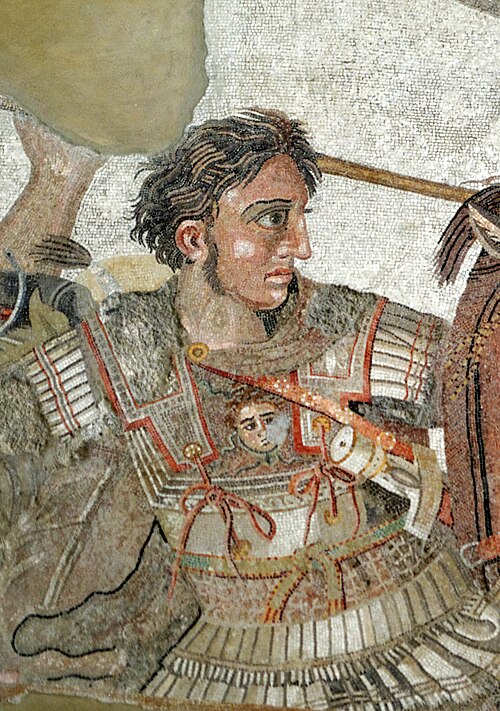Chimeranoun
(Greek mythology) Chimera (a flame-spewing monster often represented as having two heads, one of a goat and the other of a lion; the body of a goat; and a serpent as a tail).
Chimeranoun
(mythology) Any fantastic creature with parts from different animals.
Chimeranoun
Anything composed of very disparate parts.
Chimeranoun
A foolish, incongruous, or vain thought or product of the imagination.
Chimeranoun
(architecture) A grotesque like a gargoyle, but without a spout for rainwater.
Chimeranoun
(genetics) An organism with genetically distinct cells originating from two or more zygotes.
Chimeranoun
Usually chimaera: a cartilaginous marine fish in the subclass Holocephali and especially the order Chimaeriformes, with a blunt snout, long tail, and a spine before the first dorsal fin.
Chimeranoun
A monster represented as vomiting flames, and as having the head of a lion, the body of a goat, and the tail of a dragon.
Chimeranoun
A vain, foolish, or incongruous fancy, or creature of the imagination; as, the chimera of an author.
Chimeranoun
(Greek mythology) fire-breathing she-monster with a lion's head and a goat's body and a serpent's tail; daughter of Typhon
Chimeranoun
a grotesque product of the imagination
Mosaicnoun
A piece of artwork created by placing colored squares (usually tiles) in a pattern so as to create a picture.
Mosaicnoun
(genetics) An individual composed of two or more cell lines of different genetic or chromosomal constitution, but from the same zygote.
Mosaicnoun
(plant disease) Any of several viral diseases that cause mosaic-like patterns to appear on leaves.
Mosaicnoun
A composite picture made from overlapping photographs.
Mosaicadjective
(of an individual) Containing cells of varying genetic constitution.
Mosaicnoun
A surface decoration made by inlaying in patterns small pieces of variously colored glass, stone, or other material; - called also mosaic work.
Mosaicnoun
A picture or design made in mosaic; an article decorated in mosaic.
Mosaicnoun
Something resembling a mosaic{1}; something made up of different pieces, fitted together by design to form a unified composition.
Mosaicadjective
Of or pertaining to the style of work called mosaic; formed by uniting pieces of different colors; variegated; tessellated; also, composed of various materials or ingredients.
Mosaic
Of or pertaining to Moses, the leader of the Israelites, or established through his agency; as, the Mosaic law, rites, or institutions.
Mosaicnoun
art consisting of a design made of small pieces of colored stone or glass
Mosaicnoun
viral disease in solanaceous plants (tomatoes, potatoes, tobacco) resulting in mottling and often shriveling of the leaves
Mosaicnoun
a freeware browser
Mosaicnoun
a pattern resembling a mosaic
Mosaicnoun
transducer formed by the light-sensitive surface on a television camera tube
Mosaicnoun
assembly of aerial photographs forming a composite picture
Mosaicadjective
of or relating to Moses or the laws and writings attributed to him;
Mosaicadjective
decorated with small pieces of colored glass or stone fitted together;
Mosaicnoun
a picture or pattern produced by arranging together small pieces of stone, tile, glass, etc.
Mosaicnoun
a colourful and variegated pattern
Mosaicnoun
a combination of diverse elements forming a more or less coherent whole
Mosaicnoun
an arrangement of photosensitive elements in a television camera.
Mosaicnoun
an individual (especially an animal) composed of cells of two genetically different types.
Mosaicnoun
a virus disease that results in leaf variegation in tobacco, maize, sugar cane, and other plants.
Mosaicverb
decorate with a mosaic
Mosaicverb
combine (distinct or disparate elements) to form a picture or pattern
Mosaicadjective
of or associated with Moses.
Mosaic
A mosaic is a pattern or image made of small regular or irregular pieces of colored stone, glass or ceramic, held in place by plaster/mortar, and covering a surface. Mosaics are often used as floor and wall decoration, and were particularly popular in the Ancient Roman world.


























































